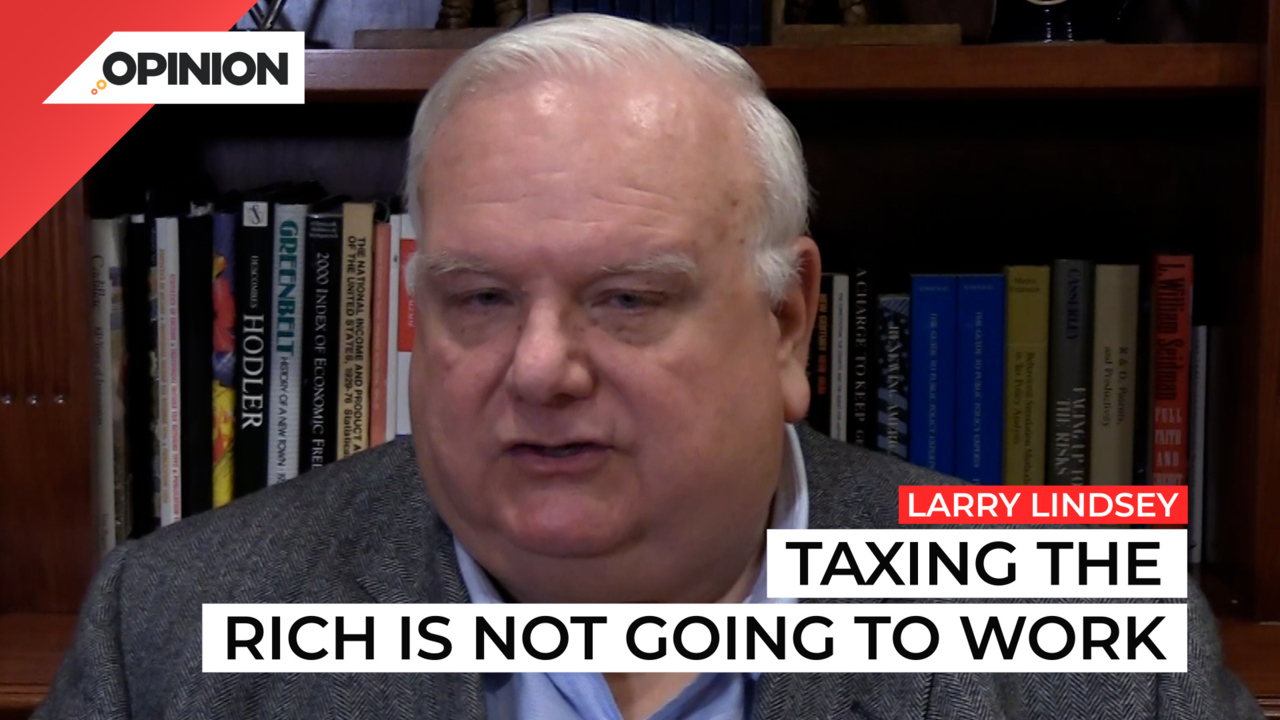
Commentary
-
Our commentary partners will help you reach your own conclusions on complex topics.
At the end of May, the Congressional Budget Office, often known as CBO, put out its long range outlook for the US economy. And for our budget situation. My suggestion is not to read it or you become very depressed, the US fiscal situation is falling apart.
But there was one bright spot. And that is US tax receipts are doing actually quite well as a percentage of GDP, at or near. They’re not quite record levels, but well above average levels.
Now, one of the interesting things about the CBO analysis is comparing this year’s report 2020 twos report with the one they put out in 2018. Back then they cut the revenue they were expecting the US government to take in because of the 2017 tax cuts.
Well, it turned out that this year’s projections that this year, starting with 2022, tax receipts were actually 9% higher than what they estimated, are about eight tenths of a percent of GDP. That’s a big number when you’re trying to balance the budget.
And if you look at their long run projections, receipts are now projected to be about what they were, if we hadn’t had any tax cut at all, meaning that although many factors may have been at stake, in effect, the cost of the 2018 tax cut was zero.
Now, what is behind all this?
Well, what’s interesting is that in the last few years, starting actually, in 2018, overall income became more equally distributed. In fact, it was the first time Trump was probably going to go down as the first president in since the end of World War Two, or at least since the 1960s, to see a decline in inequality in his tenure.
But although overall income became more equal, taxable income became more skewed to the rich.
One of the reasons for that is that there was expansion of tax credits, both in the 2017 bill, and afterwards, that generally went to lower income families.
Second was the normal supply side effect. That means that people who have seen a bigger percentage cut in their taxes will tend to work more, produce more, take more risks and generate more tax revenue.
Third, and the big one probably, is capital gains tax receipts. Now, the capital gains tax cut was somewhat helpful in that regard. But so was a rapidly rising stock market.
But in the end, taxes, particularly on the rich have gone up quite a bit. That should be a lesson for the current Congress, taking away those tax cuts probably isn’t going to produce the revenue you think it is. In other words, taxing the rich is not going to work as a way out of our current fiscal dilemma. But the Congress is going to have to make a decision. Those provisions expire in 2520 25.
Now we have two ways of going, we can repeal the tax changes and get the same amount of revenue. Or we can keep them in place and get the same amount of revenue.
Yes, it depends on, you know, whether you want to punish the rich or not. That’s what it comes down to.
What will happen will probably, if the Democrats control the government in 2025, that’s after the 2024 elections, they’re probably going to go for taxing the rich. The Republicans, however, face a problem, because you have to actually act to extend those provisions. And there’ll be enormous pressure on them not to do so.
I think what the Republicans will end up doing is extending many of the provisions, but repealing others and perhaps doing a trade off of it’s called pay for in Washington, where you enact a tax increase to cover the costs of the taxes you’re gonna cut.
It’s all very complicated, but let’s just take it for good news because there’s the US is starting this next decade in a very strong position relative to what anyone thought as far as tax receipts go this is Larry Lindsey for straight arrow news
-
Election 2024 will boil down to the Great Lakes states
Pollsters and pundits have been engaged in a long debate about how Biden or Trump might win the 2024 election, with much of their focus spent on the “swing state” electoral battlegrounds. While the winners of Alabama or California may be obvious, for instance, who wins Pennsylvania is a more difficult question. Watch the above… -
Why the Fed should consider Theory of Reflexivity when fixing policy
The Theory of Reflexivity, often used in the context of economics and financial markets, implies that investors don’t base their decisions on reality but on their perceptions of reality. This creates a feedback loop where investors’ perceptions influence economic fundamentals, which in turn alter investor perceptions. Watch the above video as Straight Arrow News contributor… -
Federal Reserve surpassed its own wildest expectations
On May 14, the U.S. Bureau of Labor Statistics released the most current producer price index (PPI) report, which showed an increase of 0.5% month-over-month in April. After the report’s release, U.S. Federal Reserve chairman Jerome “Jay” Powell said that while he believes the current policy rate is restrictive by many measures, the Fed needs… -
Polls give slight advantage to Trump in Electoral College
With the U.S. general election only six months away, leading candidates President Joe Biden and former President Donald Trump appear to be engaged in a very close contest. In their 2020 race, the winner of the Electoral College was ultimately determined by a relative handful of voters in just a few swing states, even though… -
College sports is big money but not everyone benefits
March Madness has wrapped up and Caitlin Clark has emerged as a household name as well as a wealthy student athlete. Earning over $3 million throughout her college career, her success stands in stark contrast to the previous notion that collegiate athletes shouldn’t earn anything beyond their scholarship. Straight Arrow News contributor Larry Lindsey examines…
Latest Opinions
-
 Getty Images
Getty Images
Andrew Cuomo announces NYC Mayor candidacy
-
 Getty Images
Getty Images
US troops bolster border security to curb illegal crossings
-
 Getty Images
Getty Images
Zelenskyy meets with British prime minster following tense Trump meeting
-
 Getty Images
Getty Images
Trump admin. asks federal workers to detail weekly accomplishments, again
-
 Getty Images
Getty Images
Military members with gender dysphoria to be processed for separation: DOD
Popular Opinions
-
In addition to the facts, we believe it’s vital to hear perspectives from all sides of the political spectrum.






